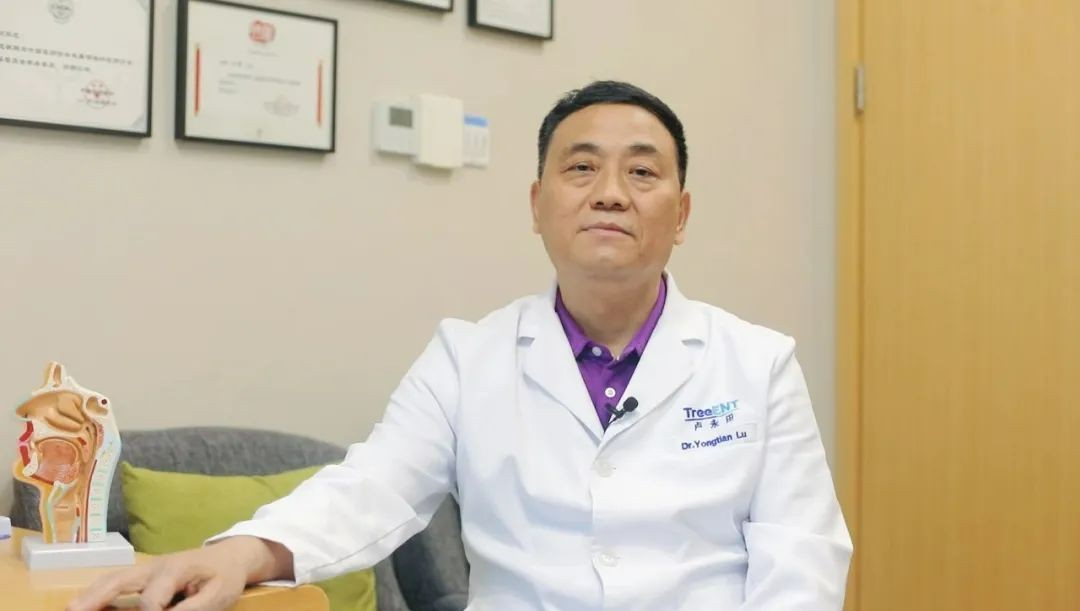Pills... nasal sprays... TCM... Western medicine...
For chronic rhinitis sufferers clinging to their "lifesaving tools,"
our protagonist today is Xiao He, a 30-year rhinitis veteran.
For three decades, nasal congestion, itching, sneezing, and runny nose cycled endlessly. Poor sleep led to headaches, affecting focus at work and while driving. Countless treatments failed—until one month post-surgery, his breathing cleared, sneezing stopped, smell improved, and sleep quality soared.
What changed Xiao He’s life?

"It was Professor Lu Yongtian’s vidian nerve branch resection at Renshu ENT that saved me!"
Professor Lu Yongtian, Xiao He’s surgeon at Renshu ENT Shenzhen Center, boasts over 40 years in otolaryngology-head and neck surgery. A pioneer in minimally invasive techniques, he specializes in nasal, nasopharyngeal, and head-neck tumor surgeries, and is among China’s earliest experts in vidian nerve branch resection—a breakthrough for refractory rhinitis.
Surgery is emerging as a new path to freedom from rhinitis.
Vidian neurectomy and its branch-specific variant are now mainstream minimally invasive procedures for allergic rhinitis, performed endoscopically.
Allergic rhinitis stems from antigen-antibody reactions in sensitized individuals. Symptoms like sneezing and rhinorrhea arise from dysregulated sympathetic/parasympathetic control of nasal mucosa—innervated by the vidian nerve and its branches.
"Not just rhinitis—my chronic sinusitis was also treated in one surgery!"
Rhinitis surgery suits these patients:
Refractory allergic rhinitis patients unresponsive to drugs or traditional therapies.
Those intolerant to long-term medications, steroids, or desensitization, seeking rapid relief.
Allergic rhinitis with sinusitis/polyps: Surgery opens sinuses, removes polyps, and severs key vidian branches (superior/middle turbinate, septal). Blocking remaining branches (inferior turbinate, palatovaginal) enhances outcomes and reduces recurrence.
Structural anomalies (deviated septum, concha bullosa, hypertrophic inferior turbinate) with dominant nasal obstruction. Correcting deformities combined with vidian branch resection addresses both issues.
"Surgery on Friday, back to work Monday. One month post-op, I’m fully recovered!"
Thanks to Renshu ENT’s advanced endoscopic techniques and efficient minimally invasive surgery center, rhinitis surgery offers key advantages:
Precision: HD endoscopy enables accurate identification and resection of target nerves.
Minimally invasive: Smaller incisions, less pain, faster recovery.
Root-cause resolution: Rapid symptom relief vs. years of desensitization.
Efficiency: Streamlined pre-op, surgery, and recovery—minimal hospitalization, lower costs.
If you’re exhausted by relapsing rhinitis,
if traditional treatments have failed,
if endless desensitization drains your patience—
rhinitis surgery may be your new hope!
